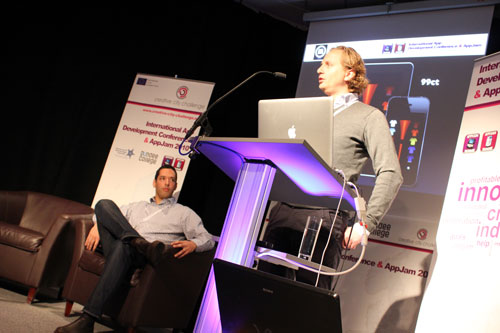November 9th, 2010 by Arjan Olsder Posted in Analysis & Editorial | No Comments »
 One of the big hits in the App Store in 2010 was the Vuvuzela app. It was not much more than a soundboard with pretty much a single sound in there.
One of the big hits in the App Store in 2010 was the Vuvuzela app. It was not much more than a soundboard with pretty much a single sound in there.
In 2009, the company already found out that the FIFA was planning to ban the Vuvuzela from the stadiums as the sound was annoying. After checking out the Vuvuzela, the guys thought it could become a nice joke.
So the guys reserved the name iVuvuzela in the App Store and because there were no real images on the internet, they imported one from Africa. To ensure quality, they decided to draw all images themselves and went into a professional recording studio to record the sound.
The development time for the app took the guys only one day. Probably not a real working day but rather 24 hours and for the development, they just followed some tutorials. After uploading the app, downloads didn’t really start, so it was time for PR.
The guys started to contact local press. From newspapers to TV stations as well as put information on YouTube (vuvuzela), facebook and Twitter. After some time, the guys managed to get mentioned on bigger, international news sites as well. The guys are convinced a hype is something you need to create yourself.

After PR picked up, it was time to monetize their app. They dropped iVuvuzela and created Vuvuzela 2010, a free Vuvuzela app monetizing through Admob. With 6.000.000 downloads, that is a great way to go. Most revenues from Admob was coming from Germany, where Jamba bought the majority of the ad inventory. In NL they made 70 cents per 1.000 clicks while Germany paid out €20 and the UK paid out €15.
An added advantage was that users kept the app open all the time during matches. Every 30 seconds, the ad changed and as the Vuvuzela was activated by shaking, the developers expect a lot of users opened the app accidently.
But there are downsides to the success as well. The guys were so busy with the media, they didn’t expand their coverage. They didn’t have an Android or BlackBerry version and they could have monetized on ringtones as well.

